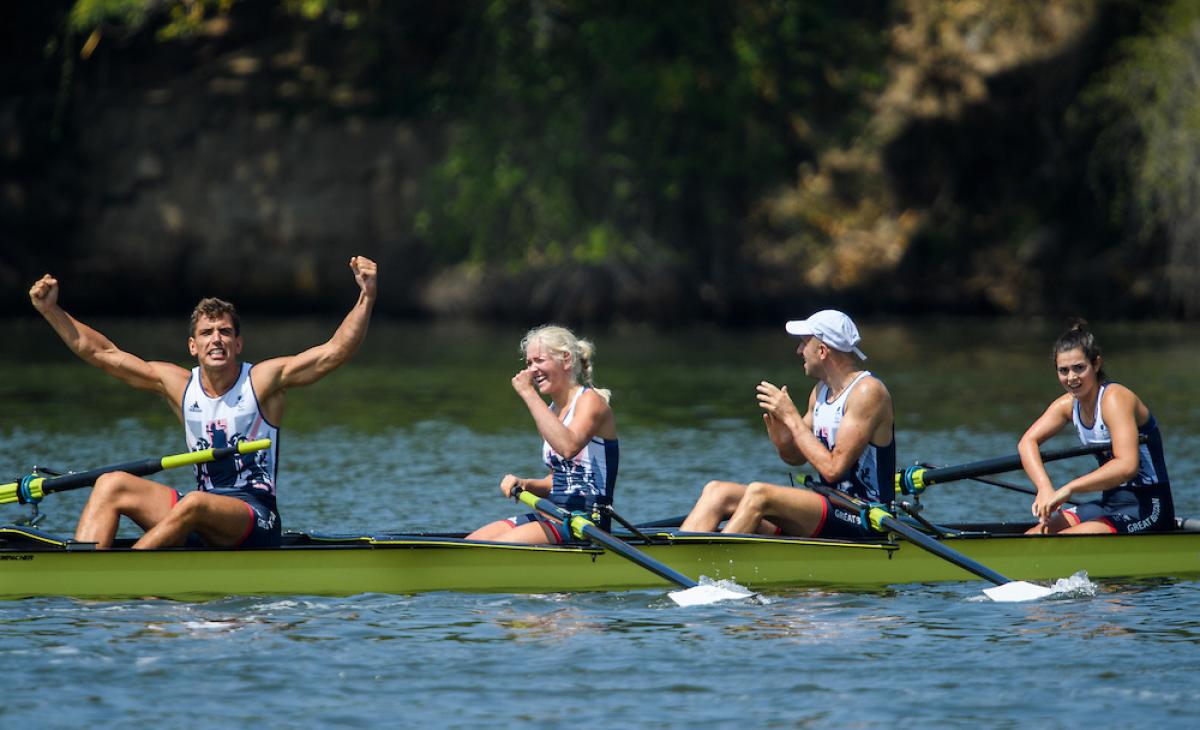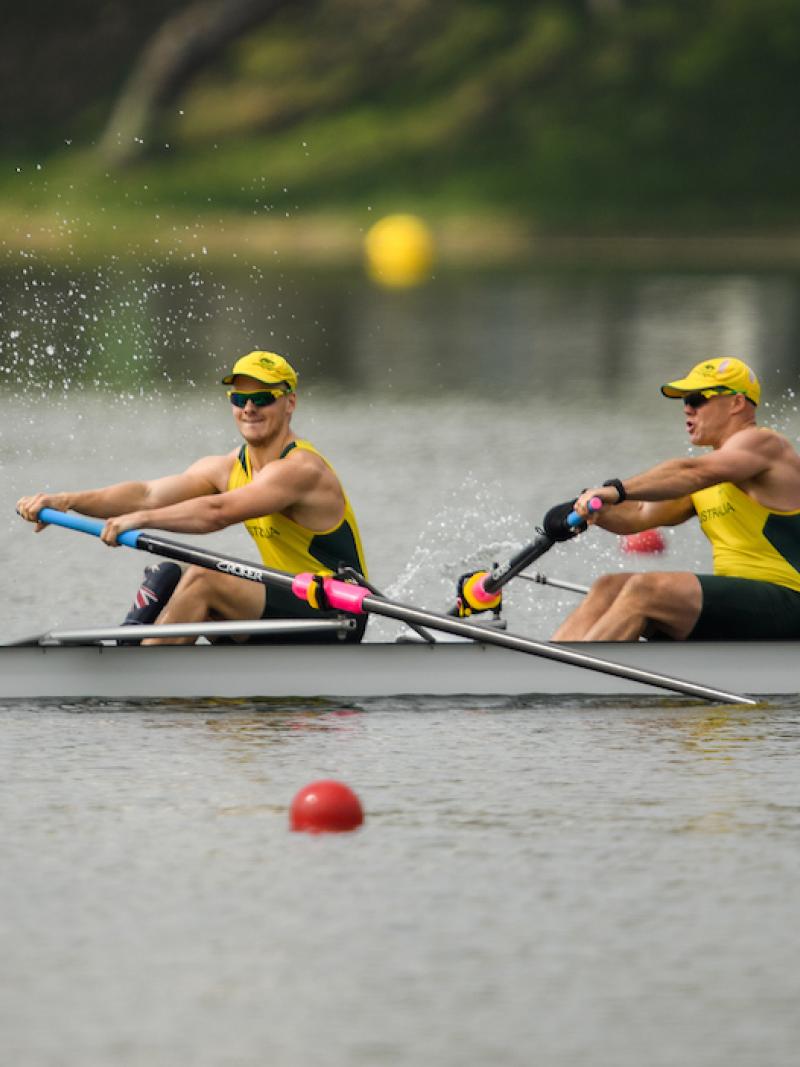Rowing: Five things we learned from Rio 2016
Find out which nation has shown consistent dominance and which countries are seeing development. 05 Oct 2016
The Great Britain Gold Medal winning crew of Grace Clough GBR (bow), Daniel Brown GBR, Pamela Relph GBR, James Fox GBR and James Olicer (cox) in the LTA Mixed Coxed Four - LTAMix4+ Final A at the Lagoa Stadium.
Here are five things learned from Para rowing’s Paralympic Games appearance held at the Rodrigo de Freitas Lagoa venue in Rio de Janeiro, Brazil:
1. Great Britain tops the sport
Great Britain dominated the regatta at Rio 2016, winning three of the four boat classes. After taking three medals (two golds) in the sport’s Paralympic debut at Beijing 2008, the British only took one medal in their home Games at London 2012.
But now they are back on top. Perhaps their strongest boat is the mixed coxed four crew (LTAMix4+) of Grace Clough, Daniel Brown, Pamela Relph, James Fox and coxswain Oliver James, who defended their title from four years ago. The British boat has medalled in all three Paralympic Games.
2. Expect the unexpected
The boats to beat were beaten.
Israel’s reigning world champion Moran Samuel was coming off a strong season in the women’s singles sculls (ASW1x) class. Taking silver at London 2012, Australia’s reigning world champion Erik Horrie was the favourite in the men’s equivalent.
Both took home a medal that was not gold – Moran just barely missing out on silver and taking bronze; and Horrie coming in for his second straight Paralympic silver.
3. Fast times
It was Great Britain’s Rachel Morris who upset Samuel with a Paralympic Games Best Time of 5:13.690. Based on her previous competition (the World Cup in Poznan, Poland), it should not have come as a surprise. Morris had finished behind Samuel at the 2015 World Championships, her best finish prior to Rio 2016.
The men’s single sculls gold went to Ukraine’s Roman Polianskyi, who also set a new Paralympic best time (4:39.560). Polianskyi was an unexpected entry for Ukraine, as reigning Worlds bronze medallist Igor Bondar was not at Rio. Polianskyi’s only major competitions prior to Rio were World Cups in Poznan (silver medal finish) and one in 2015 in Varese, Italy (fourth place).
4. USA and Canada catching up
While the British LTAMix4+ team was the favourite to win in Rio, the race would have been a tight call also with the USA and Canada. The US crew came close to upsetting the British at the 2015 World Championships. Although they took silver at Rio 2016, they barely beat out Worlds bronze medallist Canada by a hair in Rio. With that close in tasting victory, the USA and Canada can be expected to battle for more in the coming years.
5. Sport development
The sport has reached out to various corners of the world, in particular Africa, where four countries entered boats in the Paralympics – Kenya, Zimbabwe and two from South Africa. The South African LTAMix4+ was the only boat to reach an A final, finishing fifth. With Paralympic Games experience and a focus on development around the world, Para rowing can only expect to build momentum from Rio 2016 and develop around the world.

 Facebook
Facebook
 Instagram
Instagram
 Twitter
Twitter
 Youtube
Youtube
 TikTok
TikTok
 Newsletter Subscribe
Newsletter Subscribe



